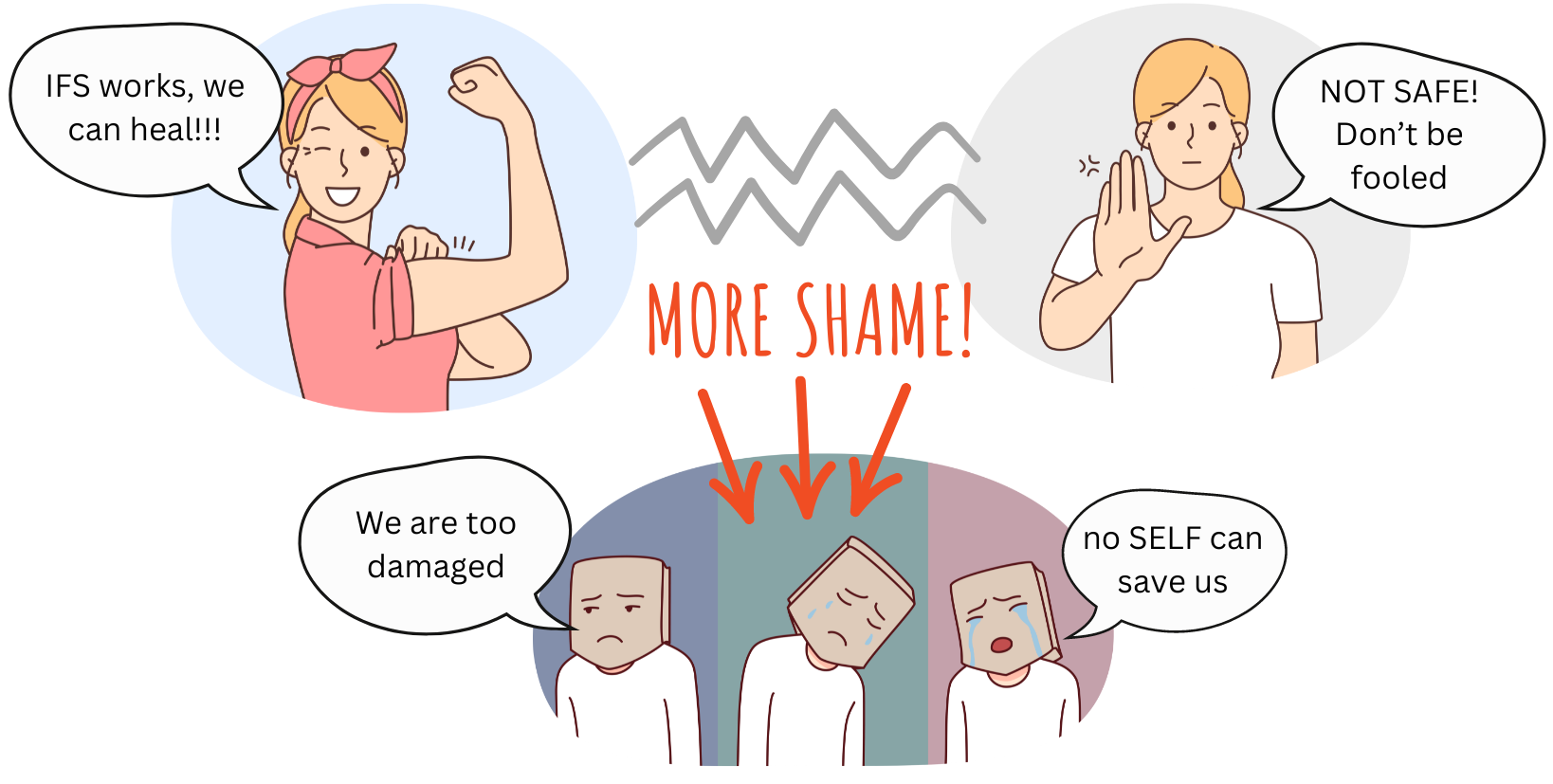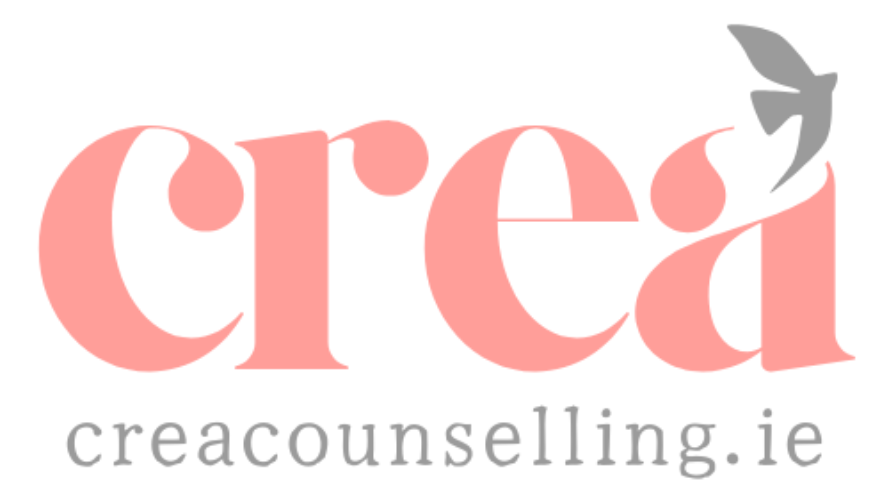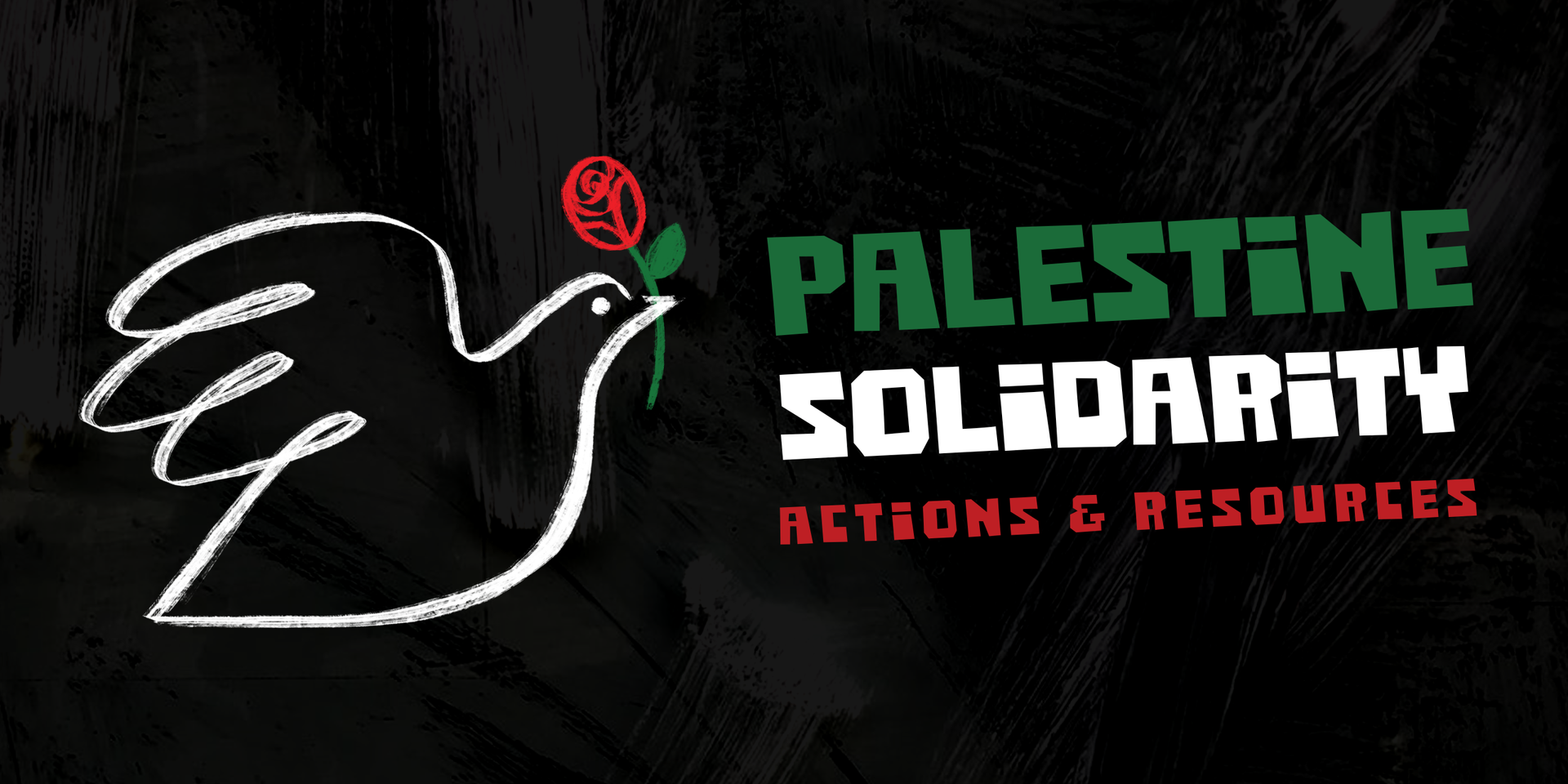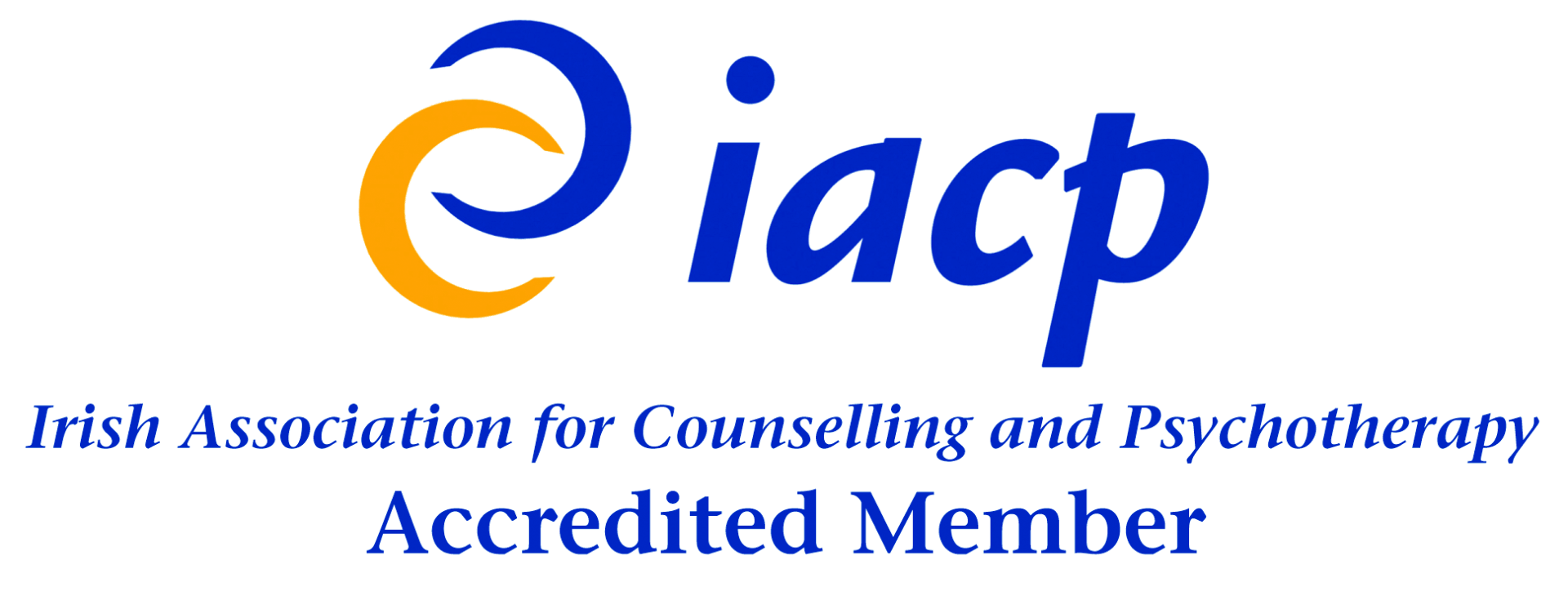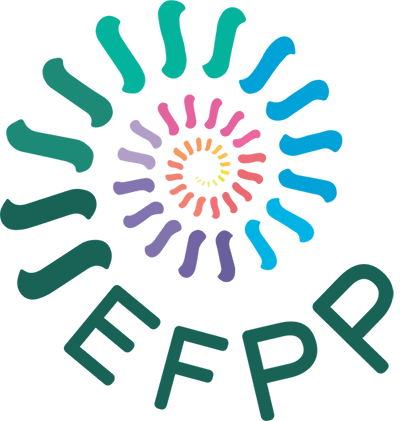Open IFS therapy
You don't have to 'fit into' IFS therapy...
As IFS has grown in popularity, we hear a lot of 'success stories'. But what if you're an IFS mistfit who struggles with IFS? Love IFS principles but the techniques feel forced? The language too scripted? You're not alone - traditional IFS just isn't for everyone.

IFS therapy makes intuitive sense to a lot of people, but parts language can put others right off. Inner children? Exiles? You've barely got time for your actual children. Maybe you tried IFS and got lost in a sea of parts, or did the unburdening thing and nothing shifted. You're not alone. And you may be interested in doing IFS a little differently. Let's start with what I think is worth holding on to in the IFS model...
IFS captures something most of us recognise: we've all felt small, powerless, ashamed or rejected at some point. What IFS calls 'exiles' carry these painful feelings, often rooted in times when we felt unsafe or unseen growing up. And along the way, we all develop ways to push those feelings down or snap out of them. IFS understands these as our 'protector parts', and they're doing exactly what they were designed to do.
IFS works with the whole system. Exiled feelings deserve compassion for never having had the support they needed. Protectors have valid concerns and real wisdom to offer. The more we listen to all parts, the less they need to go into overdrive. That creates space for 'Self energy': a grounded quality of presence that helps us respond to life's challenges with more creativity, wisdom and self-compassion.

Join the IFS misfits!
My name is Valerie. I'm an experienced IFS-trained therapist and I draw on IFS every day in my work. I've completed Level 1, Level 2, and IFIO (IFS-based) couple therapy training along with extensive advanced workshops and ongoing supervision with senior IFS trainers.
AND I am an IFS misfit...
The core principles of IFS immediately resonated with me. I've always believed our psyche is beautifully varied and naturally multiple - we all have 'parts.' And we have an innate source of inner wisdom.
Yet I've also noticed how, in a crowded therapy market, IFS sometimes risks becoming more brand than practice. The marketing can feel over-the-top. The expectations unrealistic. And when that happens, it can do more harm than good.
This is why, while my IFS training informs what I do, I remain both critical and open.
In my work I integrate IFS with other approaches I've studied - including Psychosynthesis, Jungian Psychology, Janina Fisher's trauma-informed parts model, Diana Fosha's attachment-based work, Sensorimotor Psychotherapy, Hakomi and more...
I also believe, and research seems to agree with me on that, that whatever model or technique we use, the relationship between therapist and client is the single most important factor affecting positive outcomes in therapy.
As a therapist, I find it is vital for me to show up as a person not as an IFS bot feeding clients the standard IFS script. With my clients I value a dialogue that is more intuitively relational, flexible and spontaneous, where a questioning spirit and a dash of humour are welcome and protocols and jargon are taken with a pinch of salt.
If you appreciate IFS but 'your parts' get sick of 'IFS parts talk', maybe you need to be more OPEN!
Join the IFS misfits and
get in touch.
'Therapy models' are not something to get right, not an end but a means: Open IFS is an approach that puts YOU before the protocols!
Open IFS is just a more client-centred, less model-centred IFS therapy!
Open IFS means working with the core principles of the Internal Family Systems model while keeping an open mind about the many paths we can take towards healing. What does Open IFS look like in practice?
Integrating IFS with other approaches when that serves you better
We adapt IFS to you rather then the other way round. We may help your system feel more grounded and stable by working with the body, not just through internal dialogue with parts. We may not 'go inside' with eyes closed, if it's not comfortable. We may think of parts differently: not as 'little people' inside but more as energies, states and patterns that can get stuck or flow more freely.
Valuing the therapeutic relationship as much as the internal work
We take time building safety in the relationship before diving into deep internal work. For people hurt in early relationships, this is not a 'bonus' but a precondition for inner work. When your therapist really gets your inner contradictions and sees the good in you even when you can't, there's more space inside for what IFS calls 'self' energy - that core sense of calm, clarity and compassion that's always there underneath the noise.
Trusting that healing unfolds organically, not according to a script
We follow your natural pace, not prescribed protocols to rush toward 'the big healing moment.' Sometimes, offering support to the parts of you who work overtime to hold everything together may be the road to more self-compassion - not diving into childhood wounds. Often healing is a subtle and gradual shift which happens both in and outside of therapy through art, nature and human connection.
My IFS training/ CPD
Learning to trust the self-righting impulse within us is more important than any 'therapy model'.
want to know why....
Unburdening may not be the 'holy grail' of IFS therapy
Go to my blog post on the dangers of IFS 'hope merchanting' where I speak of how systems can get polarised around hope and healing and how we may get out of this impasse
